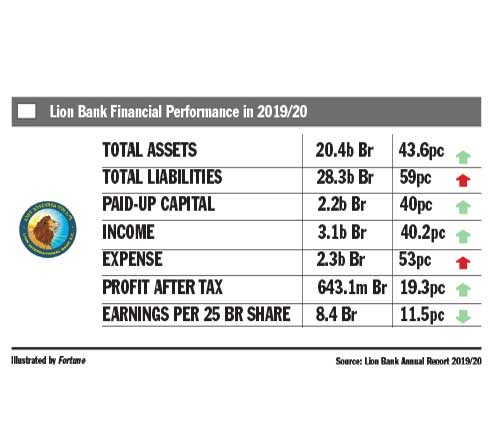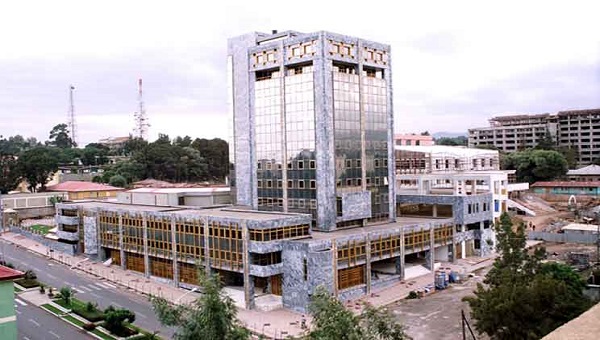
Two banks awaiting licenses to go operational have nominated veteran bankers as their founding presidents.
Ahadu Bank has nominated Eshetu Fantaye, former head of Bunna Bank, as its first president, and Amhara Bank has picked Henok Kebede, serving Dashen Bank as a senior executive, as its founding president. The banks have formally submitted requests for operational licenses, for which appointing a chief executive officer is among the requirements. Officials of the banking supervision division at the National Bank of Ethiopia (NBE) have confirmed receiving the nominations.
Upon the central bank's approval, the executives' first tasks will be getting into the procurement of information technology infrastructures such as core banking systems and recruiting vice presidents to serve under their respective offices.
Eshetu, along with his board of directors, faces the task of complying with the central bank's directive for all commercial banks to exceed five billion Birr in paid-up capital in seven years. Ahadu Bank has raised over 740 million Br in subscribed capital from 9,600 shareholders, 545 million Br of which is paid up. Serving in the banking industry for the past three decades, Eshetu studied economics at Addis Abeba University and completed a post-graduate programme in international trade and finance at the University of Rome.
He started his career in banking with the state-owned Commercial Bank of Ethiopia (CBE), in 1993, as a manager of planning and business development. Later becoming vice president of international banking, a post he held for a year. He then took a six-year hiatus from the banking industry before rejoining as a vice president of corporate services at Awash Bank, serving for close to four years. In 2011, he was appointed as the president of Bunna Bank, where he served for six years.
He exited Bunna Bank and the industry due to health concerns. For the past four years, he has been consulting, mainly working with banks under formation. He is also a shareholder at Goh Mortgage Bank, which has mobilised well over half a billion Birr in paid-up capital.
Henok also began his career in banking with the CBE, starting as an operations officer in 2002. He climbed up the corporate ladder to the position of district manager, where he served for seven years until 2015. He joined Dashen Bank that same year as Chief Operating Officer, a responsibility he holds until he is appointed a president for Amhara Bank.
Formed under Melaku Fente, former director of the then Ethiopian Revenues & Customs Authority, and Mesenbet Shenkute, president of the Addis Abeba Chamber of Commerce & Sectoral Associations, Amhara Bank has submitted Henok's name to the central bank for approval.
Henok studied management at the Addis Abeba University before attending a post-graduate study in international business at the London-based Greenwich University. He, however, will not have to worry much about meeting the central bank's paid-up capital requirements as Amhara Bank is to receive an operating license to begin operations with a paid-up capital of almost six billion Birr.
With several banks poised to enter the industry, finding experienced bankers who meet the requirements set by the regulatory bank remains an uphill task for promoters. Salaries paid to presidents in the industry have now reached 300,000 Br, according to insiders. The National Bank of Ethiopia (NBE) requires appointed presidents to have 12 years of experience in the industry, of which five years have to be served in the credit and international banking departments.
"It's tough to find someone with this level of experience," said Anteneh Sebsbe, elected board chairperson of Ahadu.
Abdulmenan Mohammed, a finance expert and a long time observer of the banking industry, believes that in countries where the rules are relaxed, banks can hire senior executives from other industries.
"In countries like Ethiopia and India, where the rules are tight, banks can find it difficult to get a person with the right education and experience, particularly in times of high demand caused by the formation of a large number of banks," says Abdulmenan.
PUBLISHED ON
Aug 07,2021 [ VOL
22 , NO
1110]

Fortune News | Jun 08,2025

Fortune News | Jun 04,2022

Fortune News | Mar 13,2021

Fortune News | Jul 20,2019

Radar | Aug 05,2023

Fortune News | Feb 16,2019

Radar | Nov 24,2024

Fortune News | Jan 13,2024

Fortune News | Apr 30,2021

Radar | Jun 15,2025

Dec 22 , 2024 . By TIZITA SHEWAFERAW
Charged with transforming colossal state-owned enterprises into modern and competitiv...

Aug 18 , 2024 . By AKSAH ITALO
Although predictable Yonas Zerihun's job in the ride-hailing service is not immune to...

Jul 28 , 2024 . By TIZITA SHEWAFERAW
Unhabitual, perhaps too many, Samuel Gebreyohannes, 38, used to occasionally enjoy a couple of beers at breakfast. However, he recently swit...

Jul 13 , 2024 . By AKSAH ITALO
Investors who rely on tractors, trucks, and field vehicles for commuting, transporting commodities, and f...

Jun 28 , 2025
Meseret Damtie, the assertive auditor general, has never been shy about naming names...

Jun 21 , 2025
A well-worn adage says, “Budget is not destiny, but it is direction.” Examining t...

Jun 14 , 2025
Yet again, the Horn of Africa is bracing for trouble. A region already frayed by wars...

Jun 7 , 2025
Few promises shine brighter in Addis Abeba than the pledge of a roof for every family...